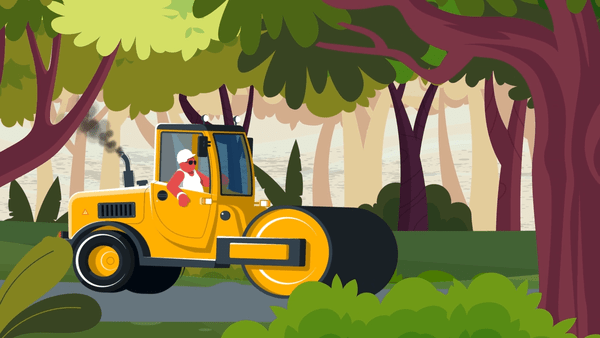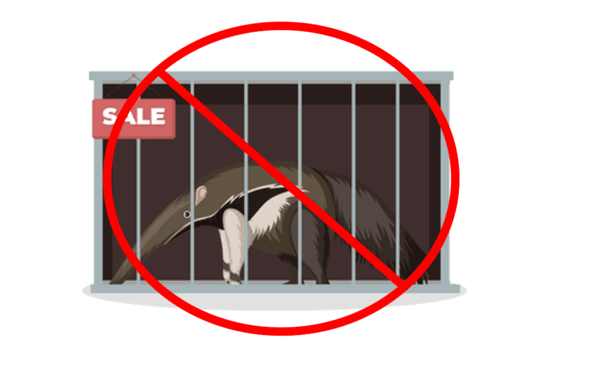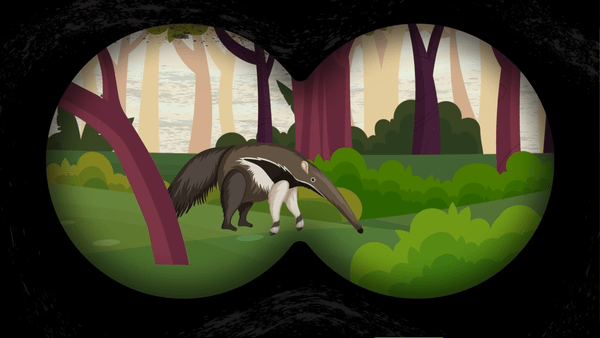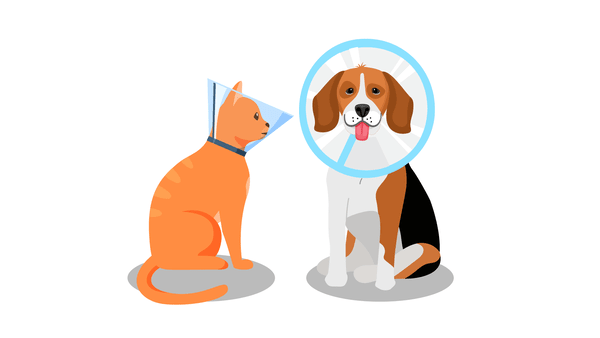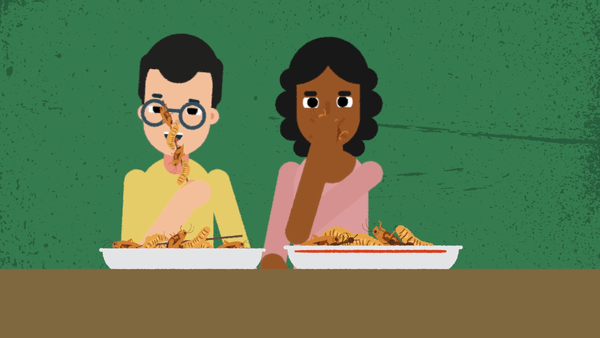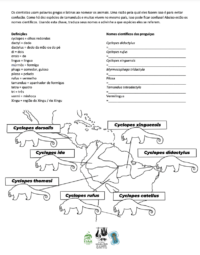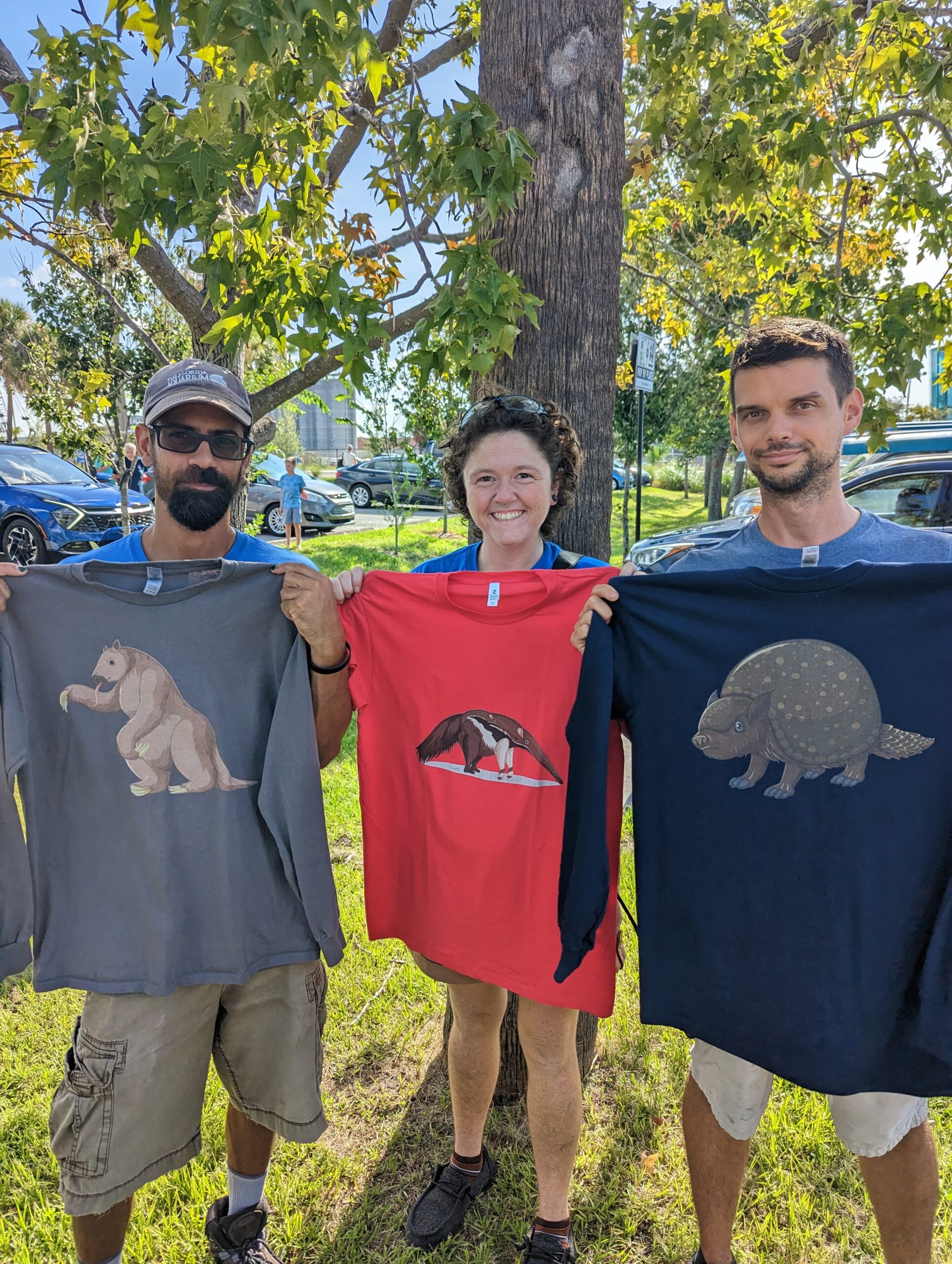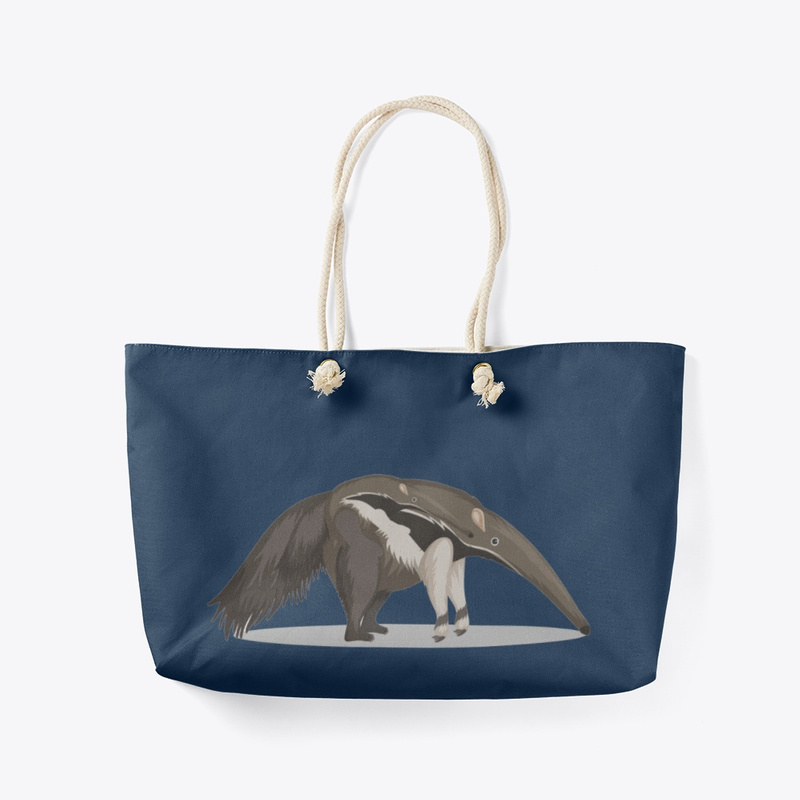
Common Pygmy Anteater Facts for Kids
Cyclopes didactylus
Lifespan: Experts are still studying
Reproduction: Female common silky anteaters usually give birth to a single young per year, usually in September-November, after a gestation of 120–150 days.
Size: Estimated around 300 grams
Diet: This is an opportunistic forager that almost entirely feeds on ants, but can also ingest beetles. To date, no termites have been identified in any study on its diet.
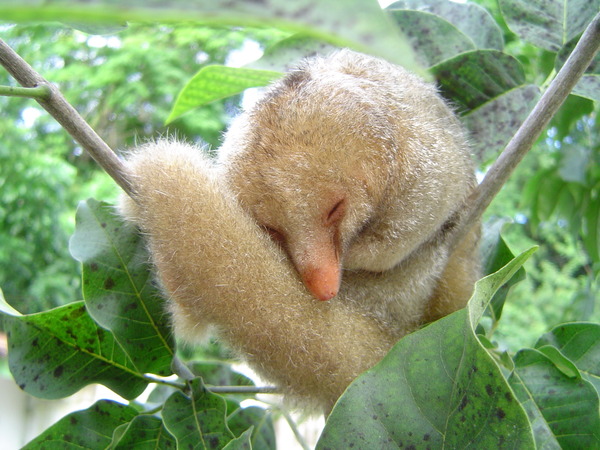
Common Names
English – Common Pygmy Anteater, Common Silky Anteater
Portuguese – Tamanduaí
Spanish- Hormiguero Sedoso Común
Dutch; Flemish – Dwergmiereneter
French – Fourmilier Nain, Myrmidon
How to Identify:
Cyclopes didactylus The general color is brownish yellow, with a grey rump, legs, and tail. There is an irregular but distinctive dorsal stripe, with evident dorsal and ventral black stripes.
IUCN Red List
Species are classified into one of nine Red List Categories: Extinct, Extinct in the Wild, Critically Endangered, Endangered, Vulnerable, Near Threatened, Least Concern, Data Deficient and Not Evaluated. Vulnerable, Endangered and Critically Endangered species are considered to be threatened with extinction.

Common pygmy anteater Facts
- Arboreal
- Nocturnal
- Toothless
- Prehensile tail
- Rests in a curled ball during the day in the shade of vines or the tree canopy
- Cyclopes didactylus has a separated subpopulation in eastern Brazil. They have been separated from each other for 2 million years!
Habitat
- Mangroves
- Evergreen Forests
 Population Trend
Population Trend
• Stable
 Threats
Threats
• Deforestation due to sugarcane crops
• Hunting due to superstition
• Use as a pet species
Here are some ways YOU can help keep anteaters healthy and safe:
– It is best to observe them from a distance and in silence.
– Our pets could attack them. It is important to keep your dog on a leash when you go for a walk, or keep your pets at home in an enclosed and safe area. In addition, taking care of our pets also means spaying and neutering them so that they do not breed without control.
– Anteaters love to live in the woods, keeping them as pets is not good for them. Keep in mind that they don’t like selfies either.
– If you find an injured anteater, contact a wildlife hospital so they can help it.
– If more people ate more bugs, there would be less demand for pigs and cows. Edible insects are better for the environment than large livestock.
Cyclopes didactylus can be found in the below countries.
Click to learn what other xenarthran species live there too!
Brazil
Colombia
French Guiana
Guyana
Suriname
Trinidad and Tobago
Venezuela
Test your new knowledge!
Test your new anteater expertise by visiting our anteater word search, puzzles, coloring sheets and name games!
Check out this video to see how much you have learned!
The Anteater, Sloth, Armadillo Specialist Group has a store that directly helps xenarthran conservation!
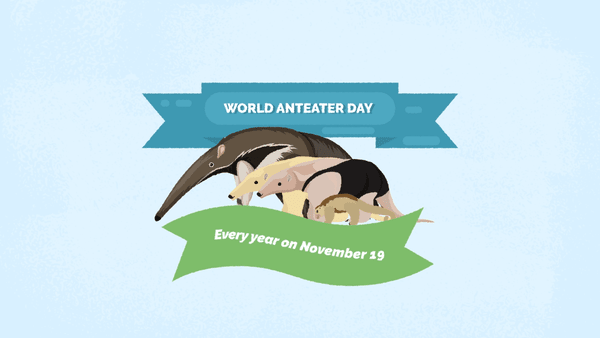
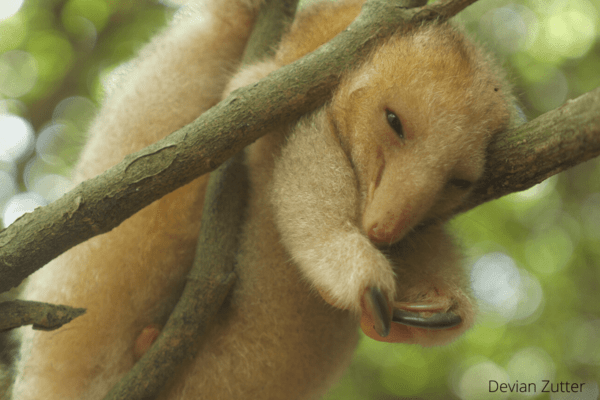
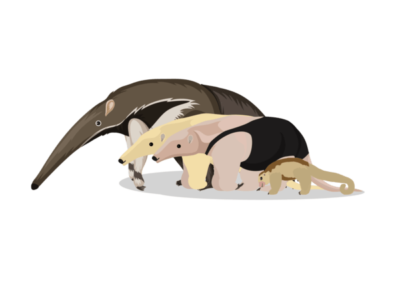

 Population Trend
Population Trend Threats
Threats